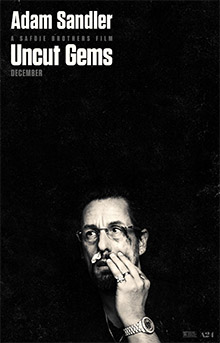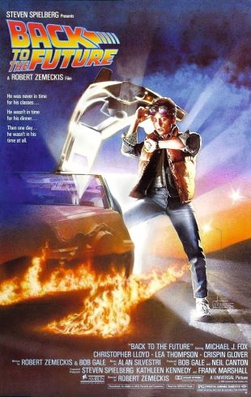Film
Articles in this category

Damson Idris
Here's a comprehensive summary of the Wikipedia article about Damson Idris:
Damson Idris is a British-Nigerian actor, born in 1991, who gained widespread recognition for his starring role as the ambitious drug dealer Franklin Saint in John Singleton's critically acclaimed FX crime drama Snowfall, which aired from 2017 t...

Uncut Gems
Here's a comprehensive summary of the "Uncut Gems" Wikipedia article:
"Uncut Gems" is a 2019 American crime thriller directed by Josh and Benny Safdie, starring Adam Sandler as Howard Ratner, a charismatic but reckless Jewish-American jeweler and gambling addict in New York City's Diamond District. Howard desperately seeks to pa...

Back to the Future
Back to the Future, the iconic 1985 American science fiction film directed by Robert Zemeckis and written by Zemeckis and Bob Gale, stars Michael J. Fox as teenager Marty McFly, who is accidentally sent from 1985 back to 1955 in a time-traveling DeLorean built by his eccentric friend Emmett "Doc" Brown (Christopher Llo...
Olmo
The term "Olmo" refers to several distinct subjects, highlighting its diverse applications across geography, botany, and culture. It identifies a commune named Olmo, located in Haute-Corse on the picturesque French island of Corsica. "Olmo" also serves as a surname, indicating its use in personal names, and names a specific variety of ...
Academy Award for Best Adapted Screenplay
The Academy Award for Best Adapted Screenplay honors the finest screenplays derived from pre-existing material, including novels, plays, TV series, and even other films, with all sequels also considered adaptations. Established at the very inception of the Academy Awards, this category has recognized numerous talents, such as Joseph L....
Feminist film theory
Feminist film theory emerged in the United States around the 1970s, significantly influenced by second-wave feminism, to critically analyze how women are depicted in cinema. Initially, theorists like Marjorie Rosen (1973) and Molly Haskell (1974) focused on sociological aspects, examining female characters, common stereotypes, and thei...
Austrian Film Museum
The Austrian Film Museum, located in Vienna, was founded in 1964 by independent filmmaker Peter Kubelka and film enthusiast Peter Konlechner. Dedicated to preserving and presenting film as both a significant art form and a crucial historical source, the museum quickly ...
Film director
A film director is the primary artistic visionary responsible for translating a screenplay into a cohesive film, guiding the cast and crew through every creative and technical aspect of production. This highly demanding role requires exceptional leadership, communication, and conflict-resolution skills to unify diverse talents, mediate...
Academy Award for Best Cinematography
The Academy Award for Best Cinematography, honoring a cinematographer's work on a single motion picture, has evolved significantly since its inception in 1927–28, with the modern system of individual nominations for a specific film adopted in 1931. Historically, it saw a unique write-in win by ...
Global Cinematography Institute
The Global Cinematography Institute (GCI) is a specialized film school dedicated to teaching emerging technologies in cinematography. Co-founded by renowned cinematographers Yuri Neyman, ASC and Academy Award-winner Vilmos Zsigmond, ASC (known for "Close Encounters of the Third Kind"), GCI aims to equip filmmakers with "Expanded Cinema...
Film theory
Film theory, an academic discipline emerging in the 1920s, provides conceptual frameworks for understanding cinema's complex relationship with reality, other arts, individual viewers, and society. Distinct from film criticism or history, its roots trace back to philosophers like Henri Bergson, whose 1896 work anticipated new ways of th...